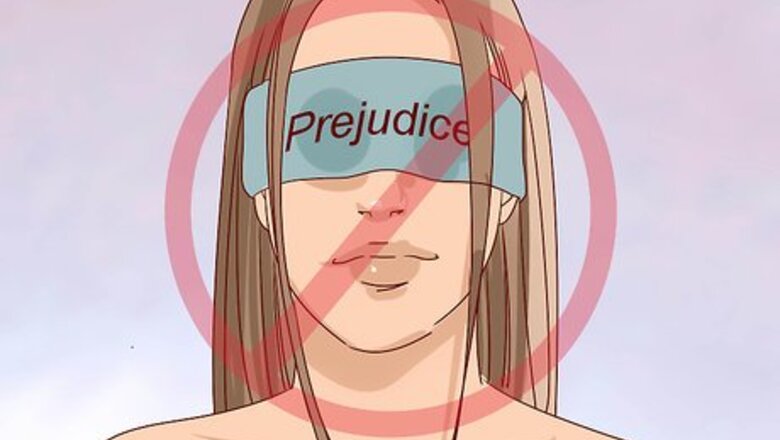
views
Finding Out If She's Actually Attracted to You
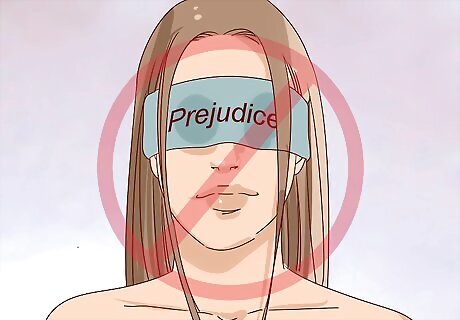
Avoid assumptions. Just because your friend is a lesbian and you are female, don't assume that there is a romantic interest. Not everyone is going to be attracted to you, or vice versa. It's the same between men and women as it is between women and women. It's about romantic chemistry. Avoid prejudice or biases towards your lesbian friend based on misconceptions.
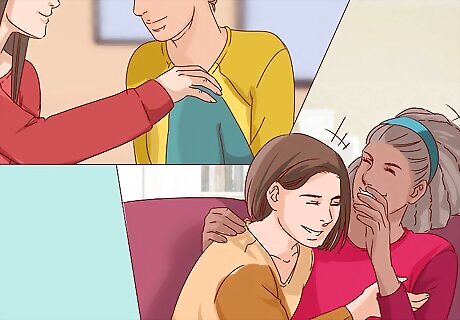
Look for body language. As with anyone who feels "butterflies in their stomach," your lesbian friend may give off signs that she is interested. Notice if the following signs are strong before assuming that your friend is into you: Physically touching you by hand or leg. Having strong eye contact, or gazing at you often. Smiling, laughing, and appearing to hang on your every word. Possibly being more physically shy or awkward than usual.
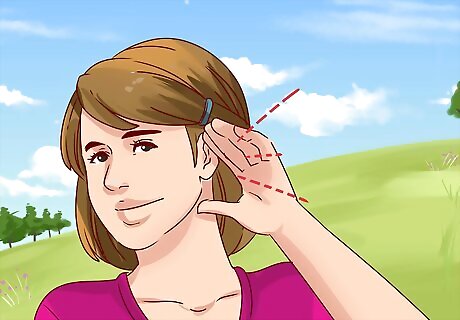
Listen to what your friend says and how she acts. While some friends may have a close bond simply due to friendship, there are some signs that your friend may be attracted to you. Think of it like when you hang out with guys that you think might want to be more than "just friends." Does your friend seem to give pointed compliments to you often? Something like, "You're so beautiful" or "You have gorgeous eyes." Does she make a big effort to spend a lot time with you, even in group or large party situations? Do you feel like you communicate more with her than your other friends? Do you text or chat with her back and forth in the same way you do with guys you're interested in?
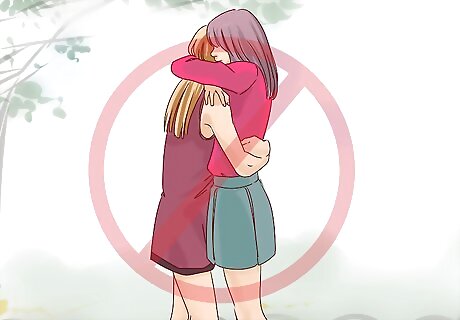
Avoid leading someone on. You may like the attention you get from your lesbian friend, but at the same time you know you're not interested. Just like with guy friends, don't play head games and lead her on. If someone is attracted to you and you're not, be mature, polite, and respectful. Honesty in the beginning will help to avoid heartaches and drama in the future.
Letting Her Down Gently
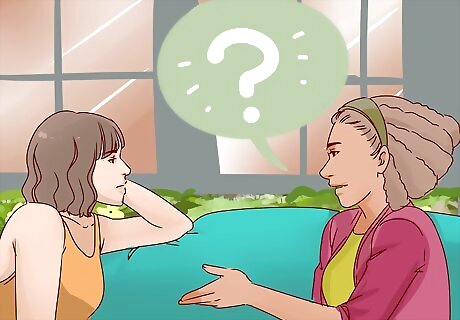
Consider asking about her feelings toward you, if any. Unless your lesbian friend has already asked you out on a date, you may not know for sure what's going on her head. Talk with your friend to understand what her feelings are, and if it's true that she's into you. If you have already engaged in sexual contact (such as kissing) or already gone on what you both know is a date, then your relationship has already gone outside "the friend zone." Be as kind and caring as you have been in the past with anyone you've dated.
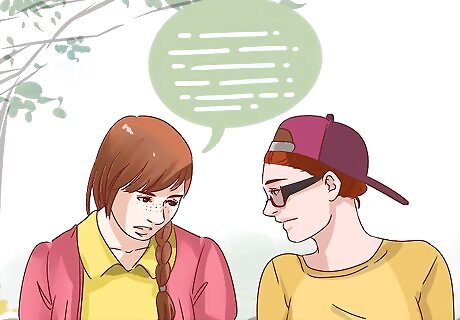
Talk with your friend in private. Avoid discussing your relationship with your friend in public or in a group with other friends. This conversation should be between you and your friend only. If you are planning to reject your friend's advances, avoid any embarrassment that may occur by talking in private. While you may be inclined to text or message your feelings about the situation, this may make things confusing or lead to misconceptions. Talk with your friend in person or at least over the phone. Direct private communication may be tough, but it will be better for both you and your friend.
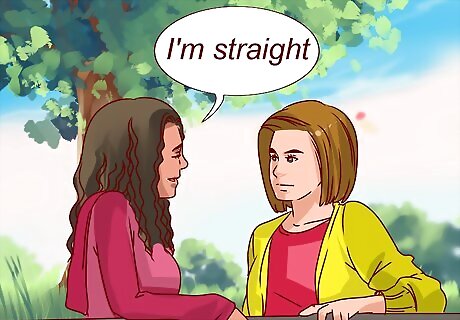
Turn her down gently. When rejecting your friend, make clear that you are not rejecting your friend as a person. Be kind and gentle. Be clear that you simply are not interested in a relationship with her, and that you are not bisexual or lesbian. Be respectful of your friend's sexual orientation. Consider saying, "I respect your orientation, but I'm just not into you. I'm straight" or "You're a great friend, and hope to keep it that way, but I'm straight and just don't feel the same way."
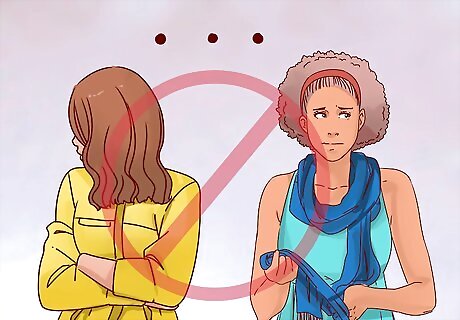
Avoid awkwardness. After rejecting someone (or being rejected), it can feel very awkward. Be mature and keep your head up. You may have rejected someone in the past, or been rejected. There is a transition phase that may feel weird, but you and your friend will move on and get over this feeling. Keep doing the things that you usually do, and avoid making this a big deal.
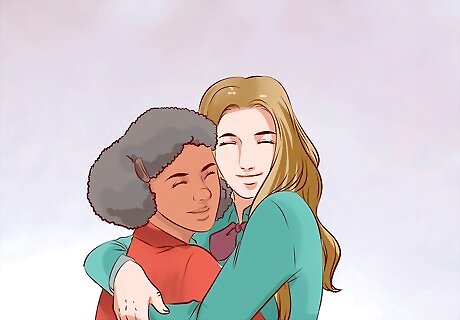
Keep your friendship strong. All friendships can go through ups and down. If you want to still be friends with your lesbian friend, make sure she still feels included in activities that you and your other friends are doing. Avoid excluding her due to this awkward feeling. True friendships will remain even after difficult times. Make clear to your lesbian friend about what makes her such a great friend. Avoid compliments that have sexual connotations, but instead focus on her strengths as a friend. A good friend is caring, reliable, honest, and trustworthy.
Talking Openly about Sexual Orientation
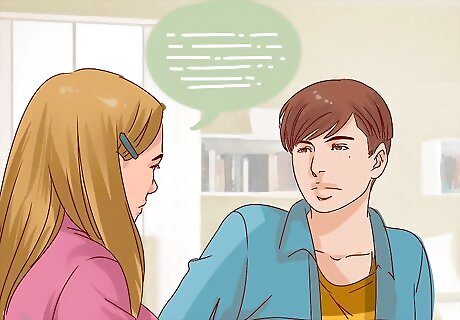
View homosexuality as part of biology rather than a lifestyle choice. Being gay or straight is part of human biology. Your lesbian friend did not "choose to be gay." A person's sexual feelings, whether gay or straight, are formed at or before puberty. Be respectful of your friend's sexual orientation. Talk with your friend about what challenges your friend may be facing with being a lesbian since society is often centered around heterosexual relationships. Understand her perspective.
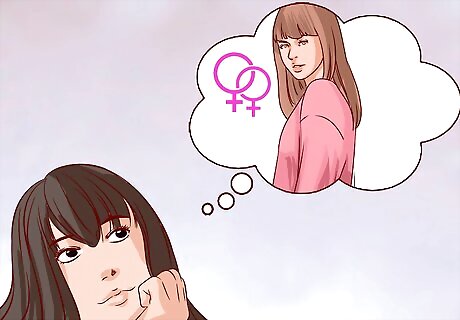
Understand that coming out as gay can be difficult. It might be harder for your lesbian friend to talk about her sexuality because it is less accepted in many cultures. Be respectful that coming out and talking about sexuality can be very difficult for some people. Be gentle in how you react to your friend's actions or what she says about being lesbian. Avoid being overly critical.
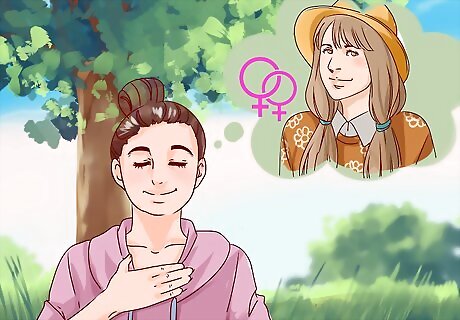
Accept your friends for who they are. Whether you have a lot of friends who are gay or not, being a real friend involves acceptance. While unwanted sexual contact shouldn't be taken lightly, feelings of awkwardness about someone's sexuality or your own biases should be avoided. Your friend has a right to be who she is, and so do you. Allow your friends regardless of their sexual orientation the opportunity to express love. You may not reciprocate those feelings, but nonetheless they have a right to feel them.













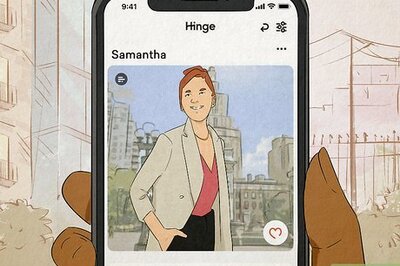






Comments
0 comment